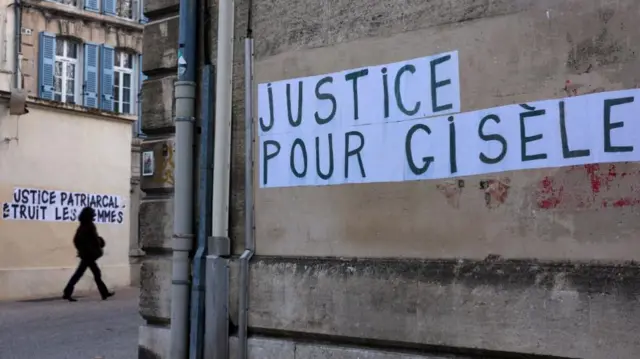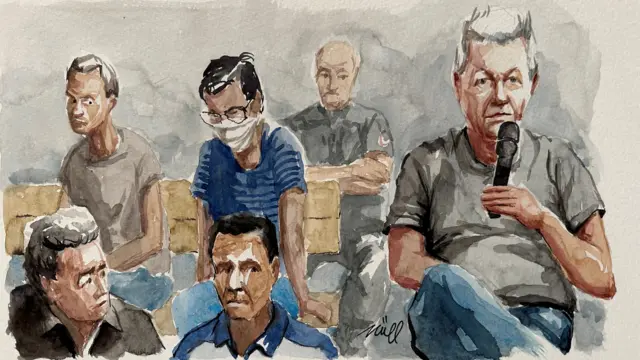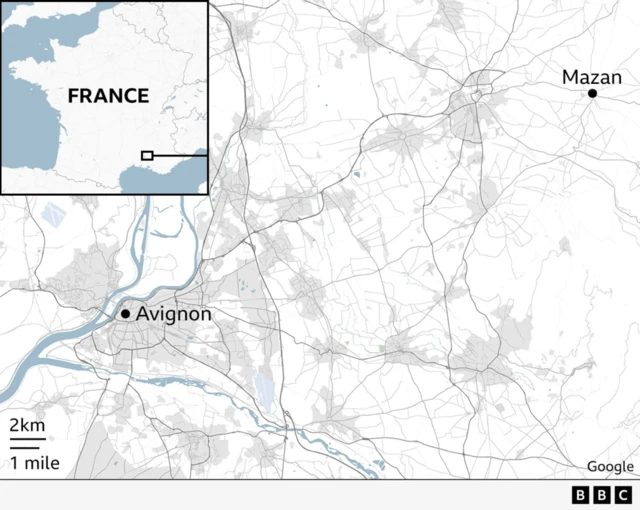'Justice for Gisèle Pelicot'published at 07:29 GMT 19 December 2024
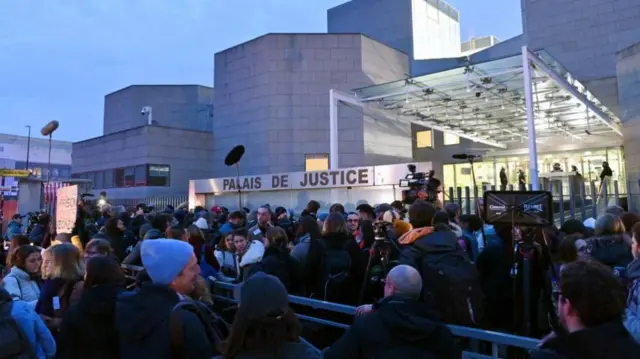 Image source, Reuters
Image source, ReutersAs our reporter in Avignon Laura Gozzi just mentioned, long queues have formed outside the court where the 51 accused will hear their verdicts and sentences later today.
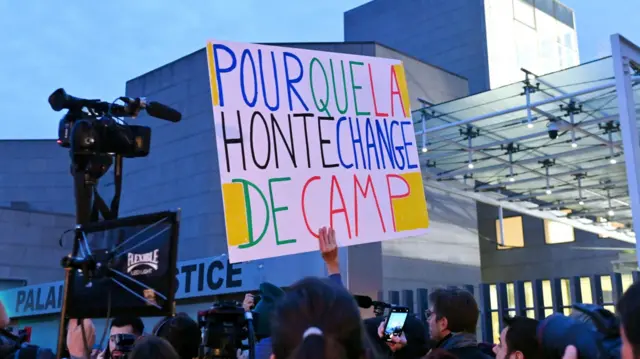 Image source, Reuters
Image source, ReutersOf the many placards being held by members of the crowd, one reads: "So that shame changes sides"
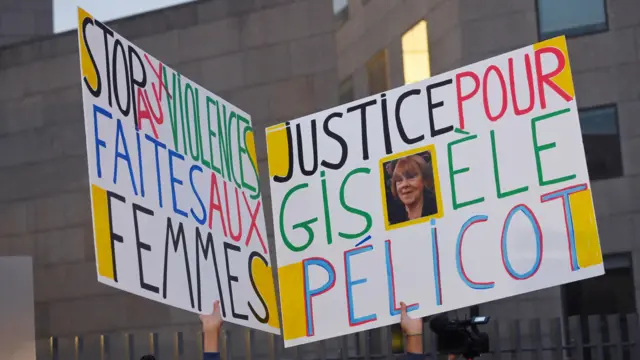 Image source, Reuters
Image source, ReutersTwo more say: "Stop violence against women" and "Justice for Gisele Pelicot"



